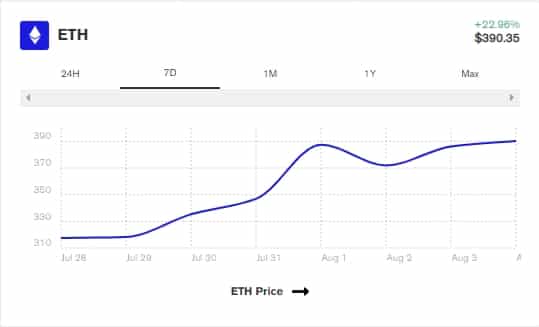The Eth2 Medalla Testnet was launched today, marking the final phase of testing before Eth2 goes live on the mainnet.
Ethereum 2.0 is almost ready to go live.
The Eth2 Medalla Testnet was launched today, marking the final phase of testing before Eth2 goes live on the mainnet.
Medal is the first community-focused testnet, in which the health of the network is in the hands of the Ethereum community, as opposed to earlier testing grounds that were mainly focused on developers. Now that Medalla is stable, the launch Ethereum 2.0 is inevitable, bringing with it the hotly anticipated rewards for receiving ETH betting, as well as a relief from growing concerns about the incredibly high transaction fees for Ethereum.
Medalla was released this morning and took just over an hour to stabilize and refine the blocks. Finality in the language of blockchains is a state in which confirmed blocks cannot be changed or revoked, which is a critical component of the immutable nature that allows blockchains to act as a reliable source of truth in the long run. More 20000 validators use nodes to support the Medalla testnet, each of which puts at least 32 ETH testnets.
The Medalla name pays homage to the original Eth1 testnet Olympicreleased back in May 2015.
An important part of the design for Eth1 and Eth2 is the variety of clients from which users can choose to connect to the Ethereum network. This requirement helps to create a diverse community of developers working with different coding languages, and also reduces the risk of a single point of failure restricting access to Ethereum for end users.
Medalla will launch with the support of five clients, and the validator node operators working at launch will receive a unique collection token (NFT) to support them.
That function As intended, Ethereum 2.0 will need over 16 unique validator nodes to support a fully decentralized network. The network operates using a "beacon chain" to group randomly selected validators into 000 "shards" - blockchains that resemble an Eth64 implementation, each capable of processing approximately the equivalent transaction volumes of the existing Eth1 chain, about 1 transactions per second.
The result is a transaction throughput of about 1000 transactions per second. The change should significantly reduce the cost of broadcasting transactions on the Ethereum network. The original Eth1 blockchain will eventually be integrated into Eth2 as a shard, uniting what will be a great blockchain object for a while.
If Medalla remains stable over the coming weeks, Eth2's formal mainnet rollout will not be far behind.

